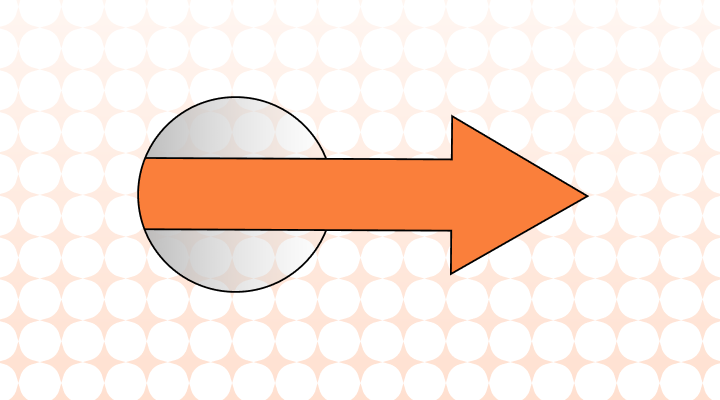- Withdraw is the action or verb that signifies the act of removing or disengaging.
- Withdrawal is the noun that describes the result or state of being removed or disengaged.


What does withdraw mean?
Withdraw is generally a verb and is used to describe the action of removing oneself from a particular situation.
For example, one can withdraw troops from a war zone.
In a more abstract sense, people can withdraw support, consent, or cooperation in various contexts, such as politics, business, or personal relationships. The key point is that "withdraw" involves an active or intentional act of disengagement or removal.
Example sentences
- She decided to withdraw her application from the job position due to personal reasons.
- The company announced plans to withdraw their support for the controversial project.
- He felt it was necessary to withdraw his previous statement after learning new information.
- Due to the impending storm, they had to withdraw their plans for the outdoor event.
- The bank allows customers to withdraw cash from ATMs 24/7.
- The army had to strategically withdraw from the battlefield to regroup.
- She felt overwhelmed and needed to withdraw from social activities for a while to recharge.
- The politician faced pressure to withdraw his candidacy amidst the scandal.
- After much consideration, he decided to withdraw his investment from the volatile market.
- The professor had to withdraw from teaching temporarily due to health issues.
Examples from the web
"He warned a decision to withdraw the ambassador could harm Australia's longer term goals." - The Guardian
"He was asked to withdraw, and did withdraw but said: I withdraw but he is still a liar." - The Guardian
What does withdrawal mean?
"Withdrawal" is a noun that denotes the result or consequence of the act of withdrawing. It represents the state of being removed, taken out, or disengaged. Withdrawal is often used in the context of finance and banking to describe the sum of money that has been taken out or debited from an account. For example, a bank statement might show a record of withdrawals made over a period.
Additionally, "withdrawal" is frequently used in a psychological context to refer to the emotional or physical symptoms that can arise when an individual stops using a substance (e.g., drug withdrawal) or discontinues a behavior or habit (e.g., withdrawal from social interactions). In this context, withdrawal can involve a range of symptoms, from physical discomfort to emotional distress.
Example sentences
- The sudden withdrawal of troops from the region left a power vacuum.
- She experienced symptoms of withdrawal after quitting smoking cold turkey.
- The bank imposes a fee for each withdrawal made from a non-affiliated ATM.
- The company faced financial difficulties due to the withdrawal of investors.
- His withdrawal from the race surprised many, as he had been a frontrunner for months.
- The treaty included terms for the orderly withdrawal of troops from the disputed territory.
- Withdrawal from certain medications can result in adverse side effects.
- The withdrawal of funding for the project jeopardized its completion.
- He underwent a period of withdrawal as he adjusted to life without his smartphone.
- The withdrawal of support from key stakeholders significantly impacted the project's progress.
Examples of withdrawal
"Many of the rural poor live far from banks, and making day-long journeys to make a deposit or withdrawal result in loss of a day's pay." - The Guardian
"I email a friendly writer who has written about the benefits of cutting down on outside input, the advantages of withdrawal and solitude." - The Guardian
Common idioms/phrases
These idioms and phrases provide additional context and nuances to the concepts of "withdraw" and "withdrawal," making them more colorful and expressive in various situations and conversations.
Related to "withdraw":
- Withdraw into one's shell: This idiom means to become reserved or introverted, often as a reaction to a difficult or uncomfortable situation.
- Example: "After the breakup, she withdrew into her shell and didn't want to see anyone."
- Withdraw from the rat race: This phrase signifies the act of escaping from the competitive and stressful world of work and daily life.
- Example: "After years in the corporate world, he decided to withdraw from the rat race and live a simpler life in the countryside."
- Withdraw support: This expression means to stop providing assistance, help, or backing to someone or something.
- Example: "The company decided to withdraw its support for the project due to budget constraints."
Related to "withdrawal":
- Go through withdrawal: This phrase is commonly used in the context of substance addiction, indicating the symptoms and discomfort experienced when a person stops using a substance.
- Example: "After quitting smoking, he went through nicotine withdrawal."
- Emotional withdrawal: This term describes the act of emotionally distancing oneself from others or situations, often as a coping mechanism.
- Example: "His emotional withdrawal made it difficult for his friends to reach out and offer support."
- Bank withdrawal: This phrase refers to the process of taking money out of a bank account, typically through an ATM or in-person at a bank branch.
- Example: "I need to make a bank withdrawal to cover my expenses this week."
🖊️ Withdraw, Resign, Quit, Leave and Cancel: Meaning and Usages
🖊️ Recanted Meaning and Examples
Practice Questions
Instructions: Choose the correct word (withdraw or withdrawal) to complete each sentence.
- She decided to withdraw/withdrawal her application for the job because she found a better opportunity elsewhere.
- After making a substantial withdraw/withdrawal from his savings account, he realized he needed to budget more carefully.
- The soldier's withdraw/withdrawal from the battle was a strategic move to regroup and plan their next attack.
- The sudden withdraw/withdrawal of support from his friends left him feeling isolated and lonely.
- Her doctor advised her to avoid caffeine to minimize the symptoms of caffeine withdraw/withdrawal.
- The company announced the withdraw/withdrawal of its latest product due to unforeseen technical issues.
- He made a hasty withdraw/withdrawal from the conversation, feeling overwhelmed by the arguments.
- The withdraw/withdrawal symptoms of alcohol addiction can be physically and emotionally challenging to endure.
- Please complete this withdraw/withdrawal slip with your account details before making a withdrawal.
- Despite the withdraw/withdrawal of the invitation, she chose not to attend the party and stayed home instead.
Answers:
- withdraw
- withdrawal
- withdrawal
- withdrawal
- withdrawal
- withdrawal
- withdrawal
- withdrawal
- withdrawal
- withdrawal
Discover more about the AI English proofreader, Engram!

Reference













